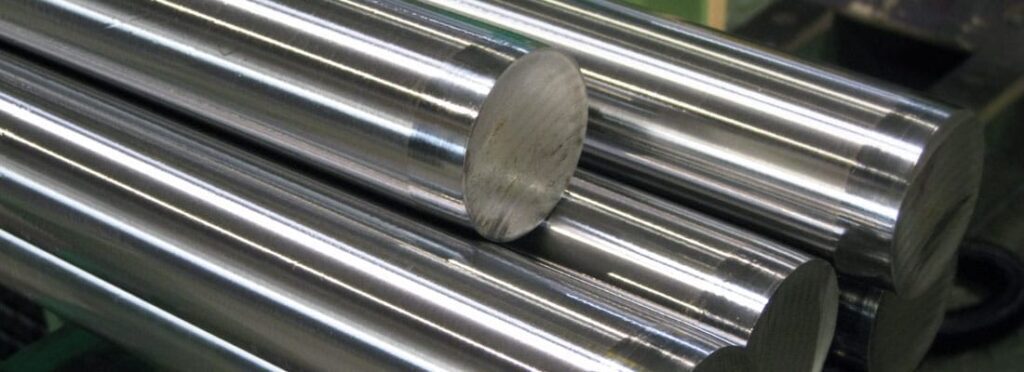Introduction: The Role of Inconel 601 in Sustainable Engineering
In today’s world, sustainability and environmental impact are critical considerations in material selection. Among high-performance alloys, Inconel 601 stands out for its exceptional resistance to oxidation and high-temperature strength. However, an increasing number of industries are questioning the ecological footprint of such materials. As leading Inconel suppliers work to improve their processes, it’s essential to understand whether Inconel 601 aligns with sustainability goals.
This article provides a comprehensive sustainability overview of Inconel 601, evaluating its environmental impact, recyclability, and contribution to energy efficiency.
1. Manufacturing Process of Inconel 601: Environmental Considerations
The production of Inconel 601 involves mining and refining nickel, chromium, and iron, as well as advanced alloying techniques. While this process is energy-intensive, leading Inconel suppliers have taken significant steps to reduce their carbon footprints.
- Resource Extraction: Mining nickel and chromium can lead to habitat disruption and emissions. However, sustainable mining practices, such as land rehabilitation and emission control systems, are increasingly being implemented.
- Energy Consumption: The alloying process requires high temperatures, consuming considerable energy. Innovations like renewable energy integration in smelting facilities are reducing emissions.
- Supply Chain Improvements: Many Inconel suppliers now emphasize using recycled materials, which significantly cuts down on the environmental impact of primary extraction.
Despite these advancements, the initial production stage of Inconel 601 still carries an environmental cost that must be offset by its long-term benefits.
2. Recyclability of Inconel 601: Closing the Material Loop
One of the most notable sustainability features of Inconel 601 is its recyclability. This high-performance alloy can be reprocessed without significant loss of its properties, making it an ideal candidate for circular economy models.
- High Recyclability Rate: More than 50% of the Inconel 601 available in the market comes from recycled sources. This reduces the demand for virgin raw materials.
- Lifecycle Sustainability: Recycling Inconel 601 requires less energy than producing it from scratch, thereby lowering its overall carbon footprint.
- Industrial Practices: Many Inconel suppliers actively collect and recycle scrap material, supporting eco-friendly production practices.
Recycling not only minimizes waste but also ensures the sustainable reuse of valuable metals like nickel and chromium.
3. Inconel 601’s Contribution to Energy Efficiency
The unique properties of Inconel 601 make it a critical material in energy-efficient applications, especially in sectors like power generation and renewable energy.
- High-Temperature Resistance: The alloy maintains strength and oxidation resistance at temperatures up to 1,200°C, reducing material failures and energy losses in industrial systems.
- Applications in Renewable Energy: Inconel 601 is widely used in heat exchangers and gas turbines, contributing to the efficiency of solar and wind power systems.
- Energy Recovery Systems: Its durability and thermal stability make Inconel 601 a preferred material in waste heat recovery units, minimizing energy wastage.
By enhancing the efficiency of energy systems, Inconel 601 indirectly supports global sustainability goals.
4. Long Service Life: A Key to Sustainability
The durability of Inconel 601 is another factor that makes it environmentally friendly. Its ability to withstand harsh conditions extends the lifespan of equipment, reducing the need for frequent replacements.
- Resistance to Corrosion and Oxidation: Inconel 601 excels in challenging environments, such as chemical plants and high-temperature furnaces, where corrosion would typically shorten the service life of other materials.
- Reduced Resource Usage: The extended lifespan of Inconel 601-based components translates into fewer resources needed for replacements and maintenance.
- Economic and Environmental Savings: Industries benefit financially while also lowering their ecological footprint by investing in long-lasting materials from reputable Inconel suppliers.
The long-term durability of Inconel 601 makes it a sustainable choice for critical applications, despite its higher initial manufacturing impact.
5. Environmental Applications of Inconel 601
Beyond its industrial uses, Inconel 601 is increasingly being employed in environmental protection systems.
- Pollution Control: Its ability to withstand corrosive gases makes it ideal for use in pollution control equipment like scrubbers and flue gas desulfurization units.
- Water Treatment Systems: Inconel 601’s resistance to chlorine and other aggressive chemicals makes it valuable in desalination and water purification systems.
- Support for Renewable Energy: Components made from Inconel 601 play vital roles in the development and operation of clean energy technologies.
The growing demand for environmentally-focused applications highlights the alloy’s relevance in the transition toward a greener future.
6. Sustainable Practices Among Inconel Suppliers
The role of Inconel suppliers in promoting sustainability cannot be overstated. Many suppliers have adopted eco-friendly practices to align with global environmental standards.
- Energy-Efficient Production: Suppliers are utilizing advanced technologies to lower energy consumption during alloy manufacturing.
- Recycled Material Usage: A significant percentage of Inconel 601 produced today includes recycled content, demonstrating a commitment to resource conservation.
- Transparency and Certification: Leading suppliers provide certifications like ISO 14001, assuring clients of their adherence to environmental management standards.
These practices ensure that Inconel 601 not only meets performance requirements but also aligns with sustainability expectations.
Conclusion: Inconel 601’s Role in a Sustainable Future
While the production of Inconel 601 involves initial environmental costs, its long-term benefits far outweigh these impacts. From its recyclability and extended service life to its role in energy-efficient and environmentally-focused applications, Inconel 601 is a material that supports sustainability.
Reputable Inconel suppliers are further driving this trend by adopting greener production methods and offering recycled options. As industries continue to prioritize environmental considerations, Inconel 601 will remain a cornerstone in the quest for high-performance, eco-friendly materials.
By choosing Inconel 601 from responsible suppliers, industries can not only meet their performance goals but also contribute to a more sustainable and resilient future.

